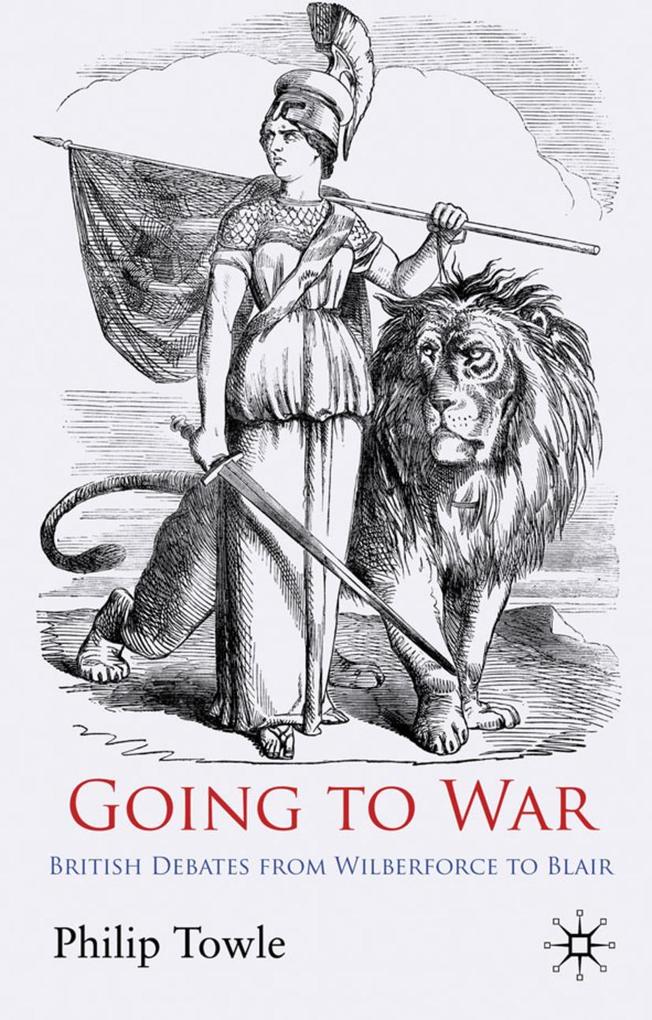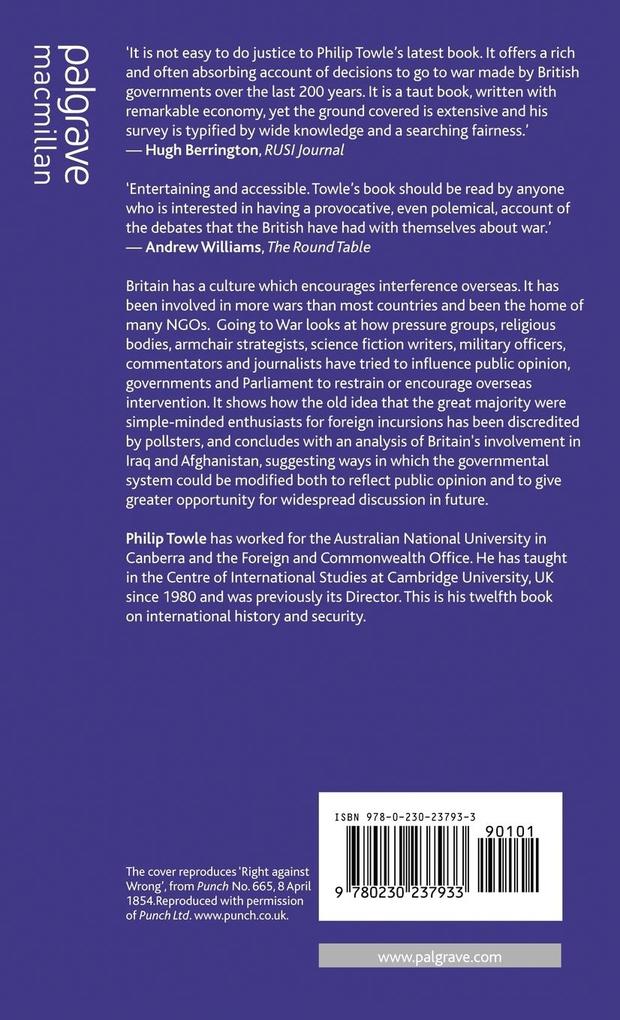
Zustellung: Mi, 02.07. - Fr, 04.07.
Versand in 4 Tagen
VersandkostenfreiBestellen & in Filiale abholen:
Going to War overturns conventional views of the role of public opinion, the armed forces, parliamentarians, NGOs and writers in the formation of British debates about impending wars. It shows the pressures and the reasons which have led to Britain's involvement in so many conflicts.
Britain has a culture which encourages interference overseas. It has been involved in more wars than most countries and founded many Non-Government Organisations. Going to War looks at how pressure groups, religious bodies, armchair strategists, science fiction writers, military officers, commentators and journalists have tried to influence public opinion, governments and Parliament to restrain or encourage overseas intervention. It shows how the old idea that the great majority were simple-minded enthusiasts for foreign incursions has been discredited by pollsters, and conlcudes with an analysis of Britain's current involvement in Afghanistan and Iraq, suggesting ways in which the governmental system could be modified to reflect public opinion and avoid foreign incursions in future. An analysis of how the media, NGOs, Churches, military officers, Parliament, novelists, armchair strategists and public opinion have shaped British debates about going to war over the last 200 years
Inhaltsverzeichnis
Preface Chronology Introduction Culture and Circumstance The Anglican Church and War Civil Society The Media and War War and Literature The Rise of the Armchair Strategists The Professional Military Parliamentary Debates Public Opinion Iraq and Afghanistan Do Debates Matter? Brief Biographies References Bibliography
Produktdetails
Erscheinungsdatum
30. April 2009
Sprache
englisch
Auflage
2009 edition
Seitenanzahl
227
Autor/Autorin
P. Towle, Philip Towle
Verlag/Hersteller
Produktart
kartoniert
Abbildungen
IX, 227 p. 1 illus.
Gewicht
299 g
Größe (L/B/H)
213/137/15 mm
ISBN
9780230237933
Entdecken Sie mehr
Pressestimmen
' It is not easy in a thousand words to do justice to Philip Towle' s latest book . . . it offers a rich and often absorbing account of decisions to go to war made by British governments over the last 200 years. It is a taut book, written with remarkable economy [yet] the ground covered is extensive and his survey is typified by wide knowledge and a searching fairness. '
- Hugh Berrington, RUSI Journal
Bewertungen
0 Bewertungen
Es wurden noch keine Bewertungen abgegeben. Schreiben Sie die erste Bewertung zu "Going to War" und helfen Sie damit anderen bei der Kaufentscheidung.










